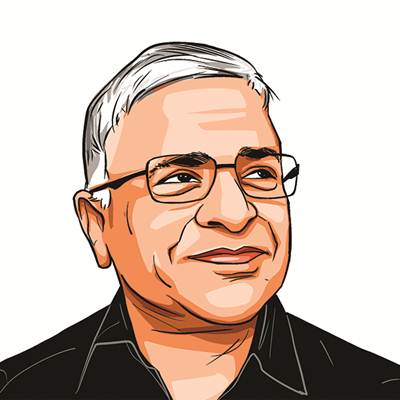Opinion P20: A parliamentary dimension to global governance
The P20, since its inception in Canada in 2010, has come a long way. It is sanctified through elected representatives and becomes socially acceptable and legally tenable
 The theme of this year's P20 Summit, “One Earth, One Family, One Future”, embodies the spirit of unity, collaboration and shared destiny.
The theme of this year's P20 Summit, “One Earth, One Family, One Future”, embodies the spirit of unity, collaboration and shared destiny. India celebrated its 74th Republic Day earlier this year, marking the moment when the Constitution of India was officially adopted on January 26, 1950, declaring India as a sovereign republic. This year is of special significance because India is the current president of the G20 — a forum of immense significance, comprising the world’s most advanced and emerging economies. India’s leadership role in G20 is undoubtedly a manifestation of its increasing importance and clout in global politics.
India’s journey as an inclusive democracy and the largest in the world, with a multi-dimensional diversity and a pluralistic society, is a fascinating and inspiring story. At the heart of India’s success story is its ability to address the challenges of nation-building in a setup replete with social, cultural, economic, and regional complexities and disparities.
Our visionary Constitution makers paved the way for a multi-party democratic political system in India immediately after Independence, despite the challenges of illiteracy and widespread poverty. Defying all odds, the country has consistently witnessed the successful conduct of free and fair elections by the Election Commission of India — an independent constitutional body, which has consolidated its democratic credentials. At a time when most post-colonial countries were battling a turbulent political environment, India’s ability to adopt and continuously practise electoral democracy by overcoming governance challenges acted as a beacon of hope for democracy in the developing world.
With time, India not only witnessed considerable socio-economic development but also the increased political participation of citizens, especially the youth. Over the years, voter turnout in India has registered an impressive increase. A very important and encouraging trend has been the increasing participation of women voters and an increase in the number of elected women representatives, especially at the grassroots level. India’s democratic discourse has witnessed the development of an immensely competitive electoral landscape in which political parties representing the interests of diverse constituencies have emerged. This indicates a vibrant democracy.
As a nation committed to democracy and multilateralism, India’s G20 Presidency is a watershed moment in her history. The G20 meetings held across India provided unique opportunities to present and share the Indian story with the global community, including its diversity, culture, democracy, development, and technological transformation. Numerous nations in the Global South regard India as a positive model of pluralistic democracy and development. They believe they can emulate India’s trajectory. India’s recent achievements during and after the Covid pandemic have only deepened that admiration.
The G20 New Delhi Summit provided an occasion for the demonstration of India’s contemporary technology advancement as well as our heritage, culture, and traditions. The energising of the international economy, availability of greater resources for development, expansion of tourism, global workplace opportunities, stronger food security through millet production and consumption, and a deeper commitment to biofuels are among the prominent outcomes of the G20 Summit that will benefit the entire nation. The conclusion of the India-Middle East-Europe Economic Corridor Agreement and the Global Biofuels Alliance during the Summit were also developments of considerable significance.
Parliament is the supreme law-making body of any democratic country and represents the voice of the people. The P20, since its inception in Canada in 2010, has come a long way, thereby bringing in a critical parliamentary dimension to the global governance framework. It is sanctified through the elected representatives and becomes socially acceptable and legally tenable in such countries.
There will be four high-level sessions organised during the P20 Summit, to be hosted by Parliament from October 12-14 on (1) Agenda 2030 for Sustainable Development Goals (SDGs): Showcasing Achievements, Accelerating Progress, (2) Sustainable Energy Transition — Gateway to Green Future, (3) Mainstreaming Gender Equality, From Women’s Development to Women-led Development and (4) Transformation in people’s lives through Public Digital Platforms. These sessions will bring together the G20 members and guest countries for wide-ranging discussions on “How Parliaments can effectively advance the objectives of the P20”.
This year, the P20 summit will also emphasise the “LiFE is Beautiful” initiative, through a pre-summit event. This initiative recognises communities that practise environmentally conscious lifestyles as “Pro-Planet People” (P-3), and seeks to leverage these practices to build a sustainable ecosystem based on the principle of “Reduce, Reuse and Recycle”.
The theme of this year’s P20 Summit, “One Earth, One Family, One Future”, embodies the spirit of unity, collaboration and shared destiny. It underlines our commitment and shared responsibility to address the pressing challenges facing our world. It reminds us that despite our differences, we are part of one global family and our actions today will shape the future we leave for generations to come.
The writer is Deputy Chairman, Rajya Sabha






